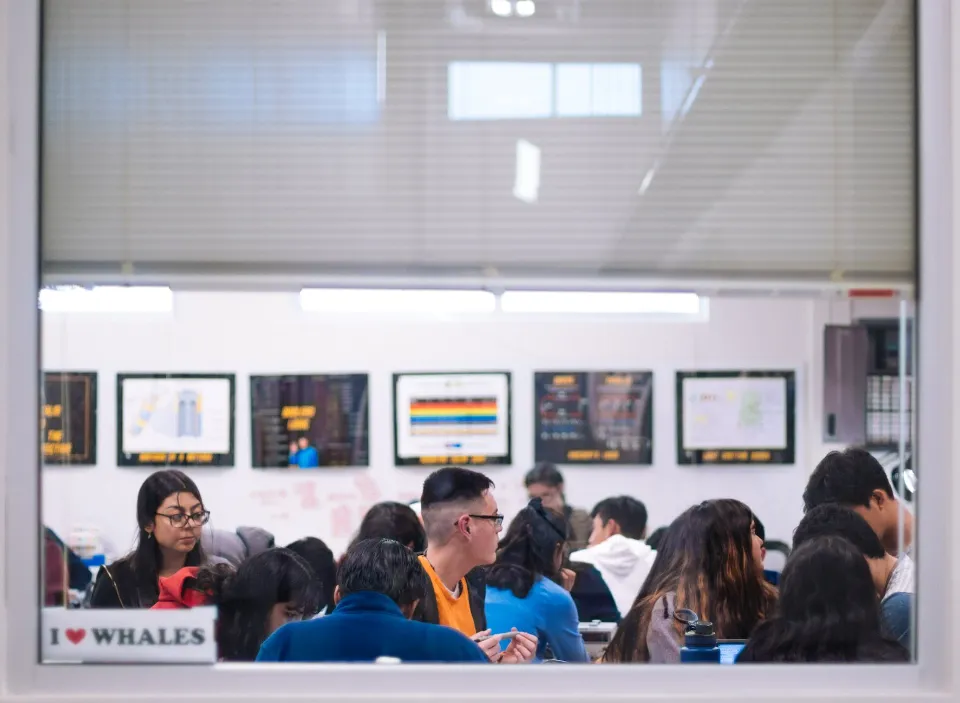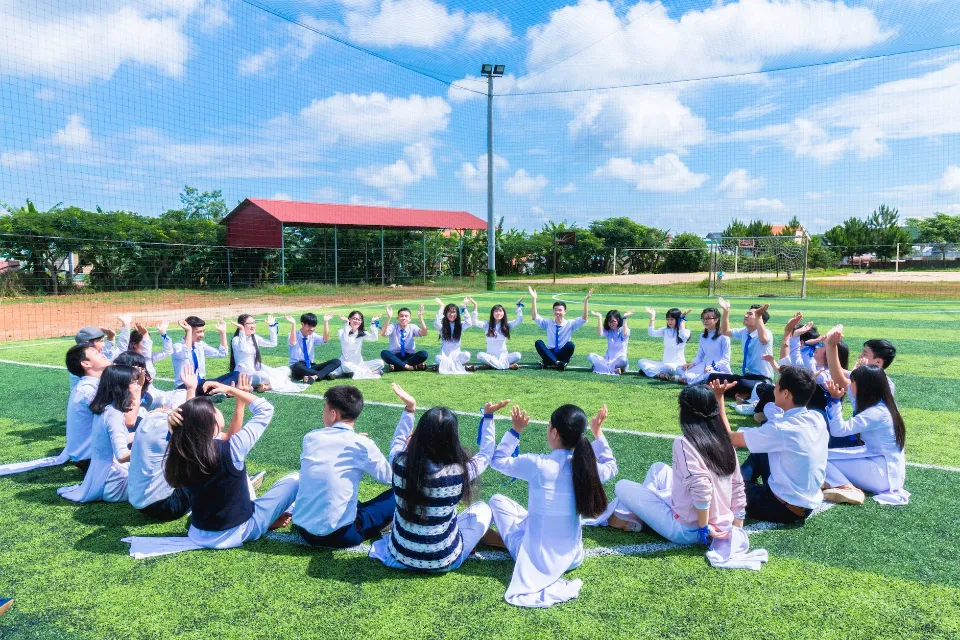The average age of 10th-grade students in the UK and the significance of this year in their academic careers are both covered in this article.
If you are wondering “how old are you in 10th grade”? Here is the answer: a student entering the 10th grade should be between the ages of 15 and 16; 15 at the beginning of the school year and 16 at the conclusion. The UK educational system states that this is generally the case.
For more information on tenth graders, continue reading.
How Old Are You in 10th Grade?
To respond directly to the question, “How old are you in 10th grade?” It is either 15 or 16 years old, depending on your perspective. This is due to the fact that if the child had started kindergarten under the K–12 system, they would have spent 11 years in primary school.
Middle school is the term used in the US for it. The youngster should be around 15 or 16 years old in the United States when asked, “When did you enter the tenth grade?” 15 and 16 years old, respectively, are the youngest and oldest students.
Thus, a student in the 10th grade in the United States is generally 15.5 years old.

The state or area in which the student in the tenth grade attends school, however, may have a different standard for this age. Depending on the school a student attends, their age may also change by the time they are in the tenth grade.
However, the majority of students at this age are in their second year of high school. In the United Kingdom, the eleventh year is the equivalent and best illustration in English. Typically, children would finish their mandatory education at this age.
In contrast to junior high school, senior high school is typically used instead of high school.
Grades are used to determine a student’s grade point average (GPA) in the United States and are recorded on their official transcript starting in ninth grade and continuing through twelfth grade.
As a result, tenth-grade students have much more control over their education and occasionally have the option to choose their core classes. 10th grade is considered a pivotal year in a student’s academic career.
Their ability to enroll in college will be determined by the year they take their standardized exams. The fact that 10th grade is a fun class for kids is a benefit. Teenagers now think differently than adults.
On the other hand, they grow in autonomy and logical thought. The eleventh grade usually comes after this one, despite the fact that some American institutions may admit exceptional students earlier as part of a college entrance program.
Is There a Minimum Age for 10th Grade?
The average age requirement for entering the tenth grade in the US is 15 years old (15 – 16 years old). For an 11th-year secondary school student in the UK, the age requirement is the same.
However, some states have late cut-off dates, which could change a child’s typical age for entering the 10th grade.

Is It Better to Start School at An Earlier Age?
It may be advantageous for you if your academic standing enables you to begin school earlier than your peers. As they begin their tenth year of school, students may be more or less mature.
The most important thing is that you continue to grow as a person and gain clarity in your life goals. Don’t let other people’s activities divert your attention. You are unaware of what they have gone through. Furthermore, life is not fair. Get used to it.
What Skills Should a 10th-Grade Student Have?
For the majority of students, getting ready for 10th grade may involve honing the abilities they gained in middle school and junior high.
However, new subjects that call for fresh expertise will be taught in most educational systems. English language, science, and math are the main subjects.
Below are some basic skills a 10th-grade student should have:
Reading and Writing Skills
- Cite examples that best demonstrate the points made in a literary or informational text.
- Examine how a writer creates a text or story’s theme or main idea.
- To comprehend how a story’s plot, characters, and settings interact with one another, study and analyze the text.
- Describe the text’s main points of contention and specific claims.
- Write papers that explain and provide information.
- Connect ideas and information to write clearly and concisely and be able to comprehend various points of view when reading a comprehension passage or story.
- Participate in short projects and presentations by using several resources to answer questions
- Be able to actively participate in discussions, debates, and conversations
Social Skills
- Works, plays, and shares with others
- An eighth grader should be organized and independent when it comes to learning
- Uses school library and other resources to study
- Seeks adult help when needed
- converse with classmates from your grade and other grades.
Math Skills

- Determine whether the relationship between two numbers is inverse or direct.
- Determine the various expression writing styles.
- possess the ability to solve polynomial-related problems.
- Make one-variable equations and inequalities, then use them to solve issues.
- Solve graph equations
- Use tables and graphs to extrapolate
- Find the value of a missing variable in equations by solving for it.
- Learn how to apply the “order of operations” to number sentences – adding, subtracting, multiplying, and dividing in the correct order
- Understanding place value and having decimal problem-solving skills.
Common Challenges Faced by Tenth Graders in Secondary School Year
Throughout their middle or secondary school years, teenagers frequently struggle with a variety of social and emotional problems.
Learn about the typical problems that teenagers face at this time, such as issues with family, authority figures, and peers, and how counselors can assist them.
Academic Challenges
Tenth graders may face a number of challenges in their academic careers. It might be difficult with the rising workload in high school. Students in the tenth grade need to develop good study habits in addition to their coursework and exams. Continuously applying and reapplying knowledge could be another problem.
Tenth graders must develop their note-taking and study skills. Additionally, they must strike a balance between their academic obligations and extracurricular activities.

Social Challenges
Tenth graders may experience social problems. Negotiating the high school social scene may be a problem. figuring out who to hang out with, what groups to join, and how to make friends without sacrificing their individuality. They must also learn effective ways to communicate, resolve conflicts, and solve problems.
Students in the tenth grade ought to start planning for the future and looking into career options. For some students, this might result in social anxiety or isolation. This entails looking into colleges and majors, as well as taking tests.
Advice for 10th-Graders
- Start thinking about your future and what you want to do
- Get involved in extracurricular activities
- Ask your teachers for help and advice
- Don’t stress too much about schoolwork
- Make friends and enjoy your high school years
- Read books on people who lead a life that inspire you
- Try and fail as many things as you can
- Don’t be afraid to fail or look stupid
- Take on new challenges
- Learn from your mistakes
- Be yourself
- Stay positive
- Make your bed
Final Takeaways
A student in the 10th grade should be between the ages of 15 and 16, despite there being a few exceptions to the rule based on American grade placement. The same age applies whether your child attends an American, British, or Chinese school; it doesn’t matter where they are enrolled.
Students in the tenth grade have the opportunity to quickly get answers to their questions about complicated issues. They can use the 11th graders as stepping stones to success in the 10th grade. So if you just stopped homeschooling and want to start again, you can check your age before registering for the public school in your district.
